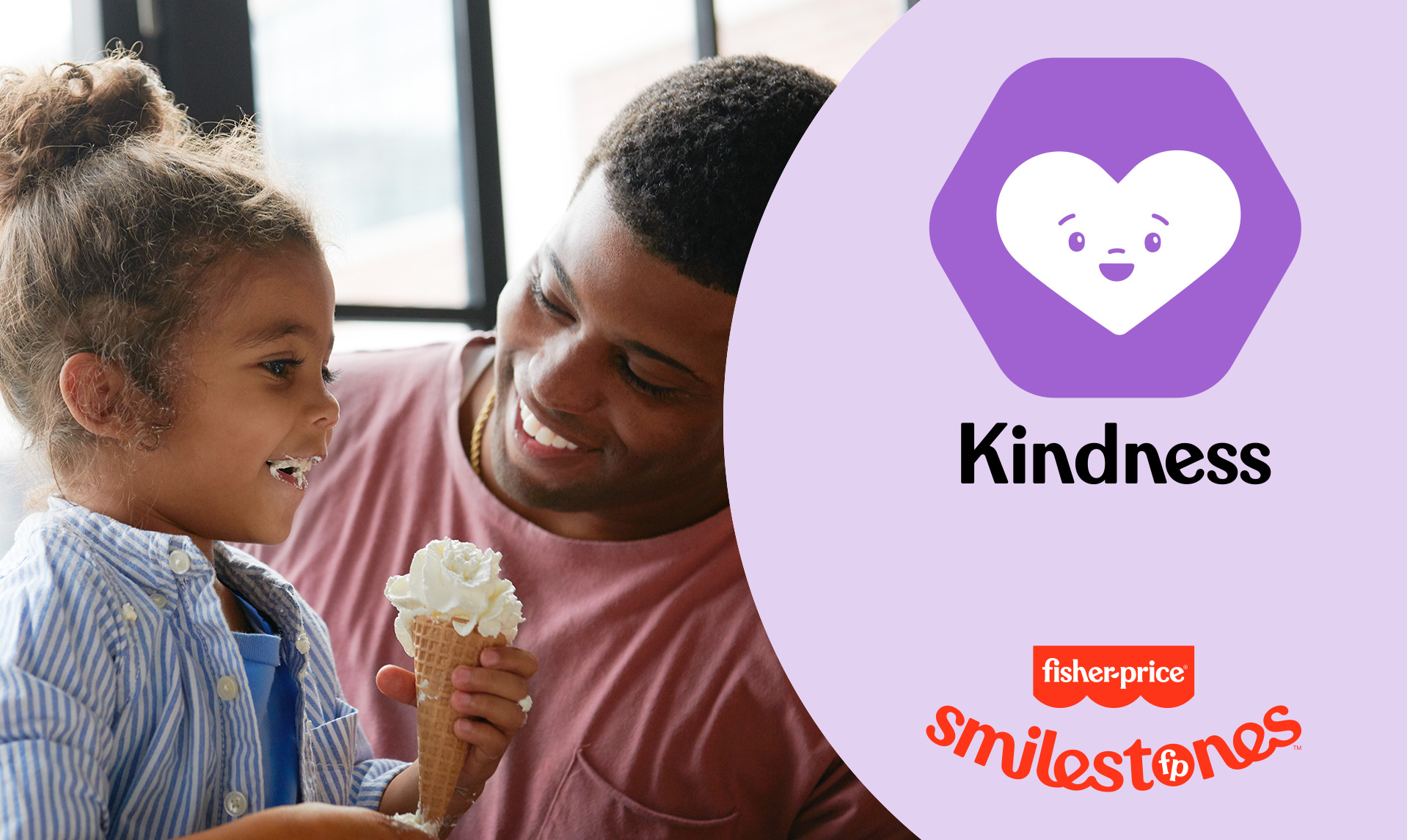Raising a Kind Kid: Tips From a Child Development Expert
July 7, 2023

Does your preschooler refuse to share? Have they ever said something REALLY embarrassing (and loud) about a stranger at the supermarket? We’ve all been there. As a mom and a child development expert, I can tell you that preschoolers have not yet developed an understanding of other people’s perspectives--they say and do what they want and they’re not always kind. I can also share some ways to work on that.

Why is kindness important for kids?
Studies show that doing acts of kindness can give kids a greater sense of belonging, improve their self-esteem, social skills, relationships and increase their happiness. Very simply, doing something kind for someone else feels good!

Tips to bring out kindness
Kindness is a big concept for little kids. Empathy, perspective, where to start? How about right here?

1. Show what kindness is.
Instead of trying to explain what kindness is, SHOW them. Point out acts of kindness you notice in books, on TV or even during playtime. Model kindness at home and when you’re out. Remember, you are their best teacher!

2. Be their kindness coach.
Set your child up for kindness success by creating very specific kindness opportunities. For example, “Your brother loves fruit snacks. I think he’d be really happy if you shared one with him. That would be really kind of you!” Suggest kid-sized acts of kindness your preschooler can do all on their own:
- Smiling
- Giving a compliment
- Drawing a picture for someone
- Saying “please” and “thank you”
- Sharing a favorite toy
- Asking a friend to choose the game they play
- Letting someone go first on the playground slide

3. Use pretend play to practice empathy.
As I mentioned, most preschoolers do not yet understand how their words and actions make other people feel. While playing together, encourage empathy and perspective by asking your preschooler how they think their character feels. (“Uh-oh! Your doll is not sharing with her friend! How do you think her friend feels? How does your doll feel?”)

4. Pour on the praise.
Reward even the smallest act of kindness with a big serving of praise. “Thank you so much for sharing your puzzle with your cousin! That was so kind!” Besides reinforcing the behavior, it will set an expectation that kindness is important to you. Also, your praise serves as a good example of being kind.
Surprising Kindness Tips
Here are a couple kindness-related tips you may not have thought of:

1. Discuss—and celebrate—differences.
Expose your child to people who are different from you and your family. Choose media and toys that represent different cultures, abilities, languages, genders and races. Then encourage them to ask questions. Discussing those questions builds acceptance, empathy and yes, kindness.

2. Show them how to be kind to themselves.
Practicing affirmations is a scientifically proven way to show self-love, build positive self-image and resiliency. Build a collection of “I” statements your preschooler can repeat every day to show themselves a little kindness. Here are some thought starters to add to your child’s daily routine:
I am smart!
I am a good friend!
I am a good helper!
I care about other people!


Signs of Kindness
Research shows that Preschoolers are self-focused, and their understanding of perspective (other than their own) is still developing. However, beginning signs of kindness happen earlier than preschool—you may have seen your child freely give hugs, try to comfort others, or say “please” and “thank you”.

At about 3 years of age, kids may
- Share toys and equipment with others.
- Start to understand that they can make someone happy by doing something nice.

By the time they reach age 4, they may
- Apologize when reminded.
- Treat other people’s property with respect.

When kids are about 5, they can
- Be courteous.
- Say “I love you” and know what it means.

Gentle reminder: Every kiddo develops at their own pace. This is just a general guideline.



Parent check-in
Being kind to yourself is just as important as being kind to others. So repeat after me:
I am an awesome and loving parent.
I am doing my best for my child.
I will be kind to myself today.
Teaching kindness takes a ton of patience. And to be honest, being kind is not always easy for adults or for children, right? So be kind to yourself in this process. It’s okay to show your child that you sometimes have trouble being as kind as you’d like to be. Keep practicing kindness—together! And speaking of practicing kindness: thank you for reading this article!
Gentle reminder: If you ever have concerns about your child’s development, trust your gut and reach out to your pediatrician.”

Bringing a smile to milestones.
Say hello to happier parenting. We’re here to help you celebrate the little victories, let go of expectations, and pick up more positivity. Because after more than 90 years of helping families, we’ve learned that development happens naturally when fun leads the way.
Learn More





































